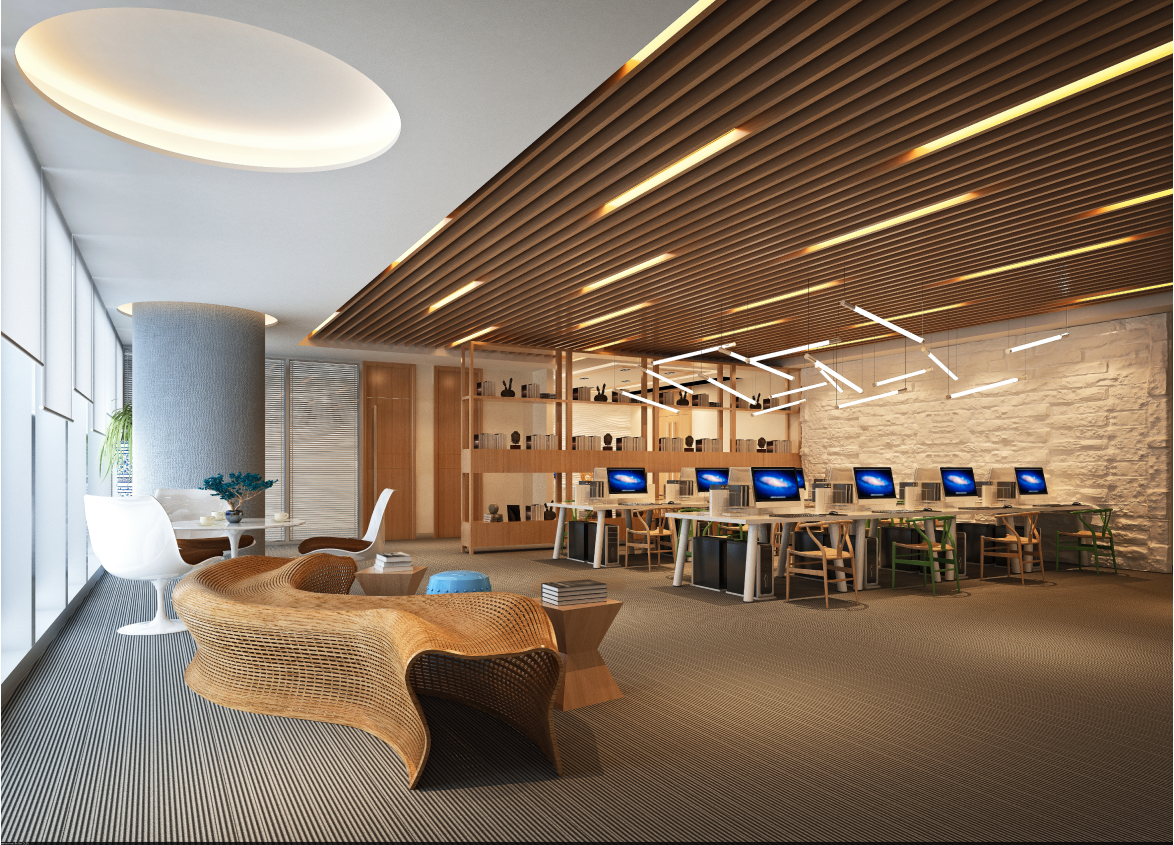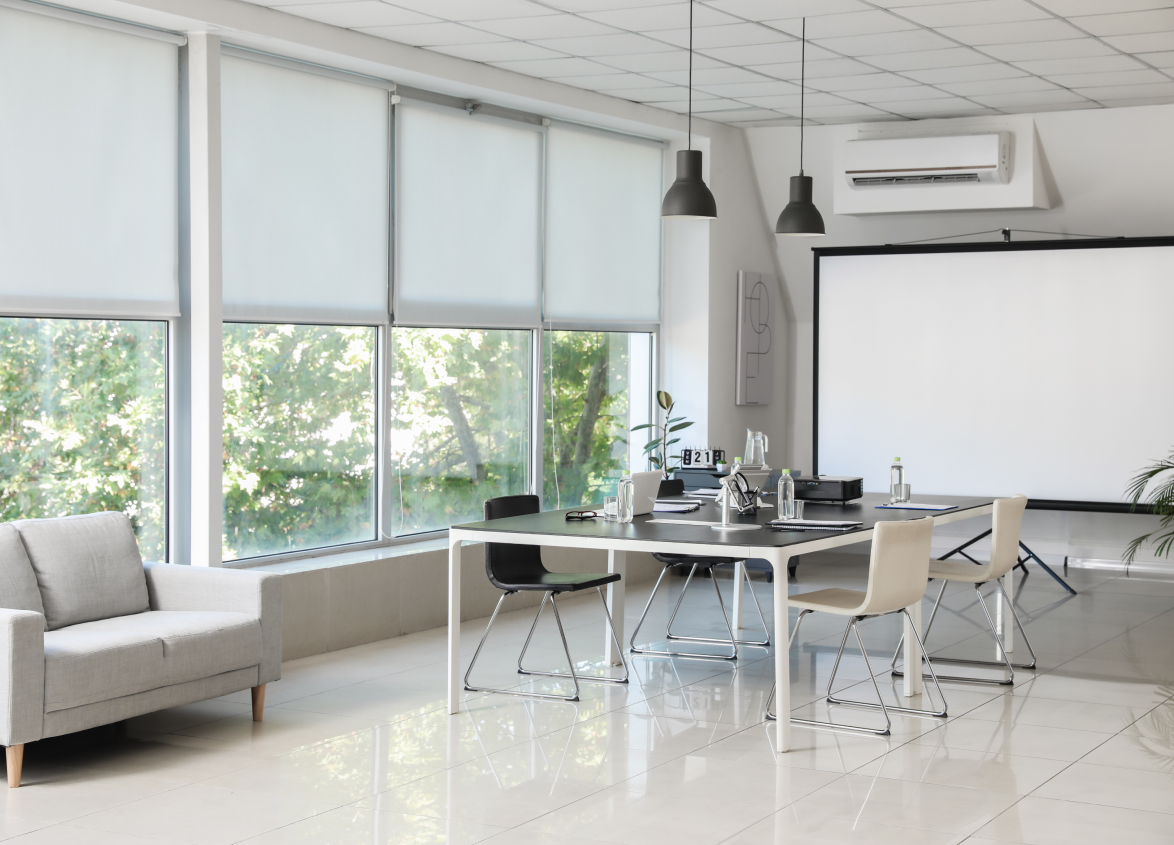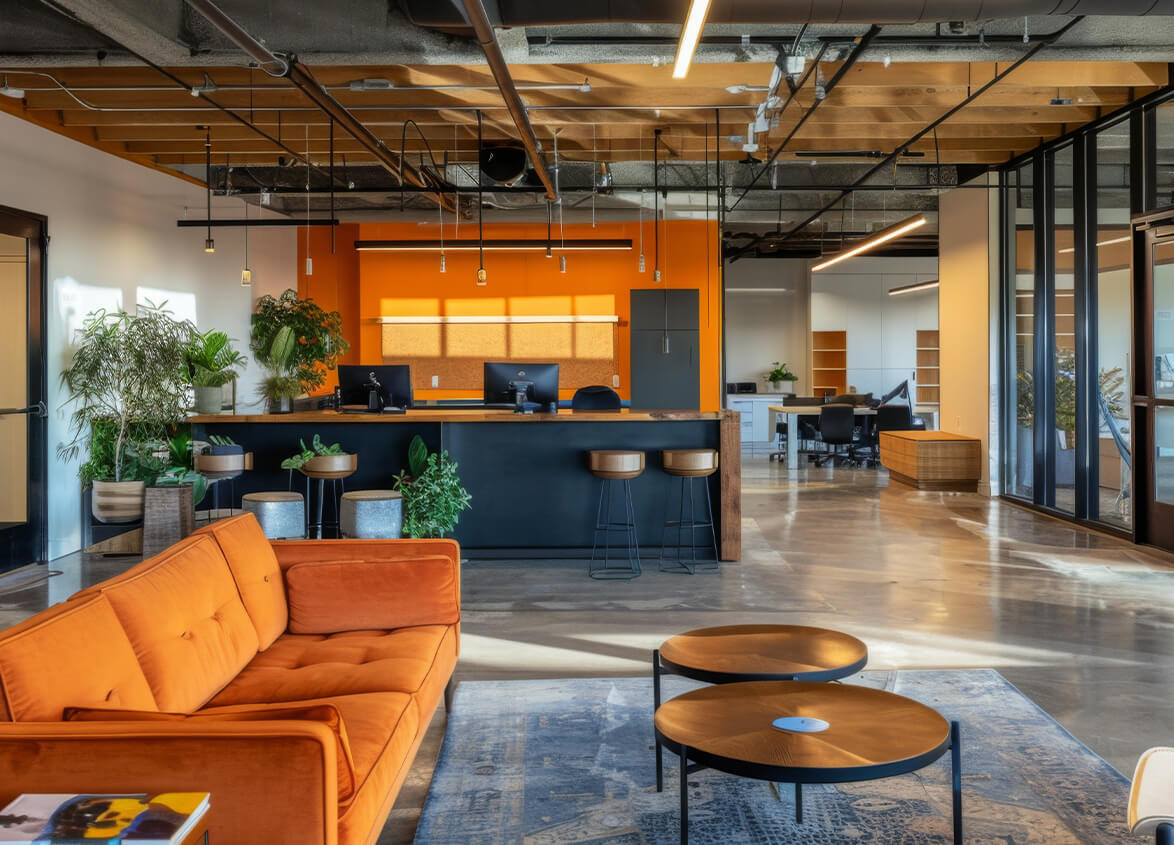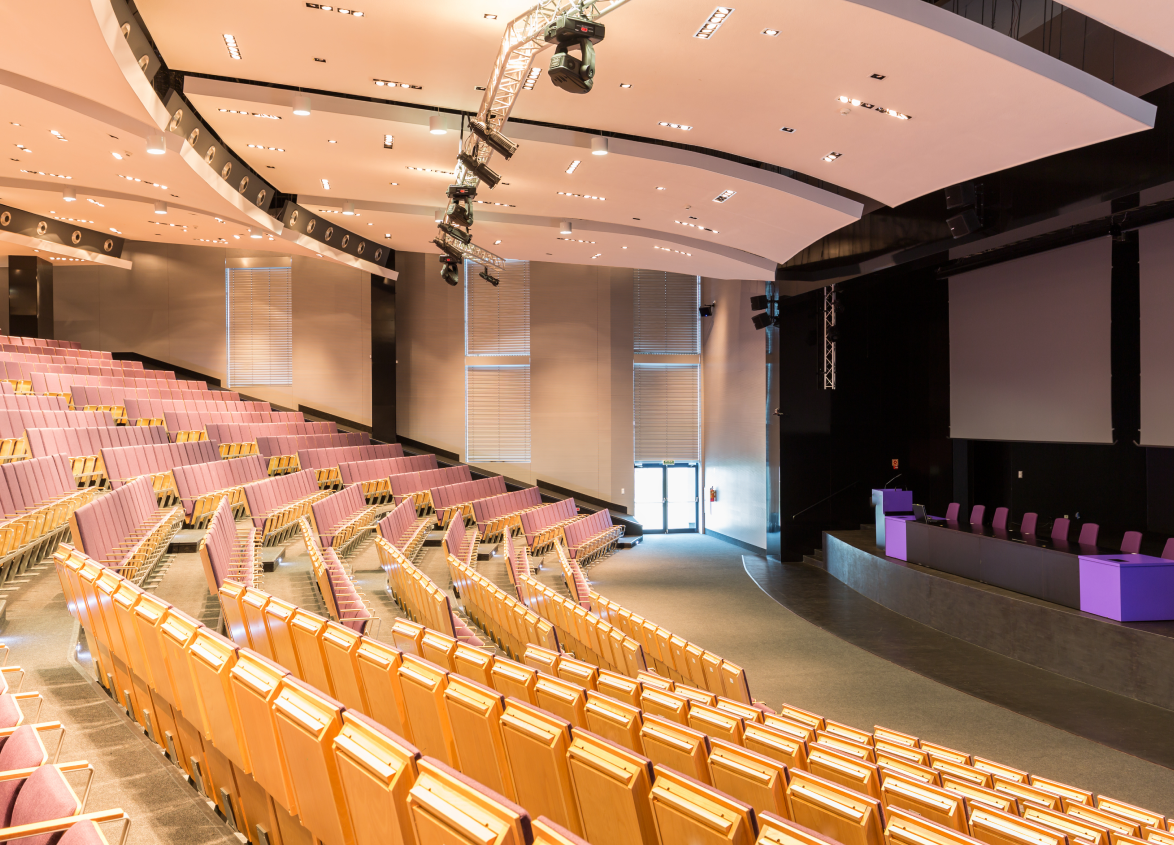
Commercial
Renting vs. Buying Office Space: The Ultimate Guide
July 18, 2024
Table of Contents
Understanding Buying vs. Leasing Office Space
Benefits of Buying Office Space
Lifetime Asset
Tax Deductions
Rent Out Extra Space
Flexibility of Modifications
Building Equity
Sense of Permanence
Benefits of Renting Office Space
Lower Upfront Costs
Flexibility and Scalability
Limited Responsibility
Access to Prime Locations
Key Factors to Consider When Renting vs. Buying an Office Space
Business Age and Stability
Growth Projections
Financial Resources
Location Preferences
Tax Implications
Choose the Right Office Space Option for Your Business Goals
Renting vs. Buying Office Space: The Ultimate Guide
Every entrepreneur dreams about office space that respects collaboration, inspires creativity, and reflects brand identity. But before you jump right into that dream location, you'll need to come to a very important decision: should you be buying vs. leasing office space? Though it might seem like a pretty simple question, it can make or break your business by affecting your finances and future trajectory.
While throwing light upon the complexities of renting vs. buying office space, this guide arms you with information to help you be better informed on the decision to be made for your company.
Understanding Buying vs. Leasing Office Space
The major difference between renting vs. buying office space would be ownership. Leasing office space involves a tenant entering into a lease agreement with the owner of a property to rent office space temporarily in lieu of a monthly payment.Purchasing office space, on the other hand, makes you the proprietor of that business asset. If you're looking for a long-term investment, exploring options for commercial space for sale can provide financial security and growth opportunities while giving you complete control over the property.
Benefits of Buying Office Space
Owning your office space can be a strategic move for established businesses with a long-term vision. Here’s how buying an office can benefit your company:
Lifetime Asset
A purchased office space is an asset that acts as a lifetime investment. It may appreciate in value over the course of time and provide a complete return on investment to the investor. This commercial property can still be further used as security in case there are future loans to be made, facilitating better flexibility in financing your business company.
Tax Deductions
Buying an office offers enormous tax advantages. If the purchase is made with borrowed money, the interest paid on the monthly loan repayment becomes deductible. Besides this, property taxes and depreciation can be deducted from your taxable income, which relieves a huge tax burden, especially for expensive properties.
Rent Out Extra Space
You, the owner, have full control over this office space. Unlike those who rent offices where changes they may want to make are mostly restricted by the regulation of landlords, you can design the internal layout, branding, and functionality to your liking for the needs of your company. This can greatly improve staff morale and productivity when working in a space that really is 'yours' and reflects your brand.
Flexibility of Modifications
You have full control over the office space, unlike renting an office wherein modifications might be constrained by regulations implemented by landlords. You can design and add branding elements and features to the interior layout that will be set up best with the operations of your company. This is what will greatly improve the morale and productivity of employees working in a space that represents your brand.
Building Equity
Every month's mortgage payment contributes to building equity in the property. This equity represents a growing ownership stake in commercial real estate, increasing your net worth and financial security.
Sense of Permanence
Purchasing an office instills some sense of permanence in the business. It demonstrates your no-nonsense commitment to your employees, clients, and the local community. To many people, particularly talents looking for security at work, this stability may be the most attractive feature.
Benefits of Renting Office Space
Whereas buying an office brings many long-term benefits, there are other advantages to renting office space, which can greatly benefit startup companies and those that are expanding:
Lower Upfront Costs
Renting office space requires a significantly smaller upfront investment compared to the substantial down payment required for buying an office. This frees up capital that can be used for essential business functions like marketing, equipment purchases, or product development.
Flexibility and Scalability
Office space for rent provides greater flexibility for varied growth trajectories. Terms for letting are predominantly much more flexible than those offered by sellers. Being able to scale up your office space easily when required or reduce it as your team expands or gets smaller usually isn't an issue at all. This means no selling a property that has become too small or finding a new location when your company starts getting too big for it.
Limited Responsibility
Normally, with regard to tenants, major repairs or maintenance works to the property will not be required. The landlord does that, which relieves you of surprise expenses to get on with core business operations.
Access to Prime Locations
Shared workspaces and flexible office arrangements are becoming increasingly common. Renting office space can provide access to prestigious locations or state-of-the-art infrastructure that might not be readily available for purchase within your budget. These premium locations can enhance your company's image and attract top talent.
Office space for lease may be more appropriate for companies in the early development or high growth rate stage. This will enable you to focus on the core business activities without the burdens of property possession.
Key Factors to Consider When Renting vs. Buying an Office Space
Some critical factors influence a company's decision between buying vs. leasing office space, including:
Business Age and Stability
Renting: This is good for startups and young companies. It allows for flexibility and lessens the burden of substantial capital tied down in a down payment for a new office space. This would help most, especially if your business model's on the move—or, at the very least, you're not quite certain what kind of long-term room you will need.
Buying: Established businesses that have been in operation for several years and demonstrated their commitment to the area benefit from purchasing office space. Ownership brings with it stability and allows one to churn up a lifetime asset and forms a base for securing future loans.
Growth Projections
Renting: If you anticipate significant growth in the near future, renting office space offers the flexibility to easily relocate to a larger space when needed. Many commercial office spaces offer a variety of sizes to accommodate growing companies.
Buying: Buying office space might be suitable if you have a clear vision for your long-term space needs and plan to stay in the same location for an extended period. However, if your company experiences unexpected growth, purchasing a larger space upfront might be necessary, leading to additional costs.
Financial Resources
Renting: Renting office space requires a smaller upfront investment compared to buying. The typical cost involves a security deposit, often equivalent to a few months' rent. This allows businesses to conserve capital for other critical areas like marketing, inventory, or product development.
Buying: Purchasing office space necessitates a substantial down payment, typically ranging from 20-30% of the property's cost. Additionally, ongoing expenses like property taxes, insurance, and maintenance must be factored into the equation.
Location Preferences
Renting: Renting allows for greater flexibility in terms of location. Businesses can explore various options, including prestigious areas with high visibility, without the long-term commitment associated with buying.
Buying: Buying office space ties your business to a specific location for the foreseeable future. Consider the long-term impact on your company's accessibility for employees and clients when making this decision.
Tax Implications
Renting: Rent payments are considered a business expense and are tax-deductible.
Buying: While mortgage interest and property taxes associated with buying an office are tax-deductible, ownership also comes with the responsibility for depreciation, which can impact your taxable income. Consult with a tax professional to understand the specific tax implications for your business.
Choose the Right Office Space Option for Your Business Goals
There is definitely no one-size-fits-all answer to the renting vs. buying office space question. What is best for your business will depend on those business needs, funds, and long-term strategy.
The smaller, growing companies with limited capital and a demand for flexibility will no doubt benefit the most from renting office space. More established businesses that are not concerned about fluctuations in their future and who want to build equity while having complete control over their workspace may benefit most from buying office space.
Weigh the factors above carefully and consider discussing the strategy with a financial advisor and/or a professional in commercial real estate—for a little more insight related to specific situations. After making an informed decision to either lease or buy office space, which will make all the difference for the growth and success of your business.
A right office space solution includes the one that empowers your team, enhances the company culture, and furthers overall business goals.
MUST READ
Looking for something specific?
We'd be delighted to help you.



































































































































































































































































































































































































































